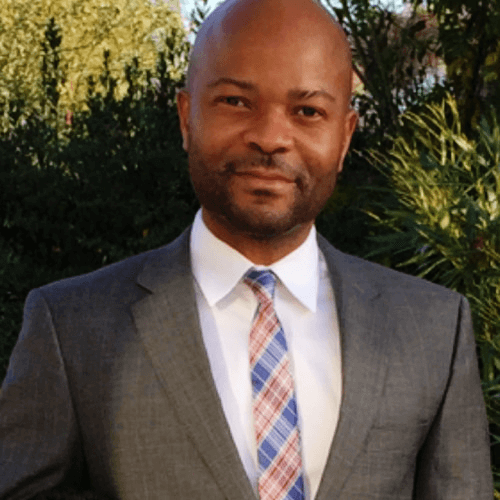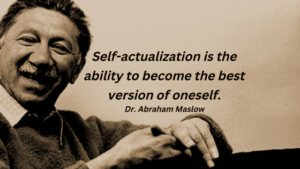Veterans often possess a strong sense of self-awareness due to their training and experiences in the military. However, transitioning to civilian life—and the workforce—can bring new challenges that may require different self-awareness skills.
Self-awareness involves the ability to recognize and understand your own emotions, thoughts, and behaviors, but it goes beyond this, too. It involves understanding how your words and actions affect others. Self-awareness is a central skill to acquire in order to achieve your goals and have healthy and productive relationships, both in your personal life and in the workplace.
One of the biggest challenges Veterans may face is dealing with workplace conflict. Developing self-awareness can help you cope with workplace issues and improve your ability to navigate problems that arise in the civilian workplace. When you have a good sense of self-awareness, coping with conflict will come easier to you because it allows you to identify and successfully manage your own emotions and reactions to difficult situations. Plus, self-awareness is a skill that will remove a lot of the stress, anger, or anxiety you might feel in response to workplace conflict.
Below are some strategies you can use to increase your self-awareness and cope with workplace stressors.
Learn how to apply mindfulness at work.
Mindfulness is developing your ability to be present in the moment and observe your own thoughts and emotions without judgment. It can help you become more aware of your emotions and reactions to people and stressful situations.
You can practice mindfulness by taking a few minutes each day to focus on your breathing and observe your thoughts and feelings. You already know from your military training that mastering something involves daily practice, repetition, and building habits. Learning to be mindful is no different. Many people learn to be mindful by meditating for 5 to 10 minutes every day, focusing on their breath, and observing thoughts and emotions without judging or reacting to them.
Reflect on your personal values.
Reflecting on your personal values can help you develop self-awareness because it helps you to understand what is important to you and how this influences your behavior. When faced with conflict, ask yourself how your values align with the situation and make decisions based on those values.
Listen to feedback from people you can trust and consider good influences on you.
Seeking feedback from others can provide you with valuable insight into how you are perceived by those around you, and this helps to strengthen your self-awareness. Don’t mistake this for people-pleasing or being overly focused on what others think about you. Listening to feedback from others is a good way to assess how your words and actions affect others and whether you can benefit from improving on specific ways you interact.
If you consider yourself to be stubborn at times, or if you have difficulty admitting to being wrong, seeking feedback from others can be very helpful to you as you work to increase your self-awareness.
For instance, you can ask your coworkers and supervisors for feedback on your communication about a specific work-related issue. It’s also important to be open to guidance or opinions from people in your personal life, such as your spouse, friends or other loved ones. It’s especially helpful if you seek out feedback from others in moments when you disagree or have conflict. This will help you assess how others interpret the way you respond in stressful situations.
Active listening helps you to see where others are coming from.
Active listening is fully focusing on what someone is saying without interrupting, making assumptions, or judging. It takes patience to actively listen, especially if you’re listening to someone you don’t agree with—or you don’t particularly get along with. This is not only an excellent exercise in developing self-awareness but also in developing self-control. In fact, these two skills go hand in hand.
Active listening involves body language, such as eye contact, nodding, and turning your body towards a person so you face them as they are speaking. Asking clarifying questions is also an important aspect of active listening. Asking questions, period, is a great way to show the person speaking that you’re listening to them and absorbing what they’re saying. You can also “reflect back,” which means that you rephrase and repeat small portions of what the person says to show them you’re engaged in what they are saying.
Know your triggers and learn to cope with them, even when you can’t avoid them.
Understanding what triggers negative emotions in you helps you remove those triggers. Consider what your triggers are by reflecting on past experiences and conflicts, and think about what specific situations or behaviors tend to cause a negative reaction in you—whether that reaction is internal or outwardly expressed to others.
Owning up to your mistakes takes self-awareness—along with confidence and courage.
Taking responsibility for your actions and reactions as well as their consequences, is a key aspect of self-awareness. When faced with a conflict, you should ask yourself how your behavior may have contributed to the situation and take responsibility for any actions that may have escalated the conflict. You will be surprised how you can totally disarm another person simply by admitting to your own mistakes. You can gain a significant advantage when it comes to resolving conflict and meeting your needs during disagreements if you’re willing to admit to your own faults and then develop solutions to resolve issues.
Additional resources:
If exploring yourself and how you can improve your career and impact your world is something you are interested in, book a free Career Consultation here.



